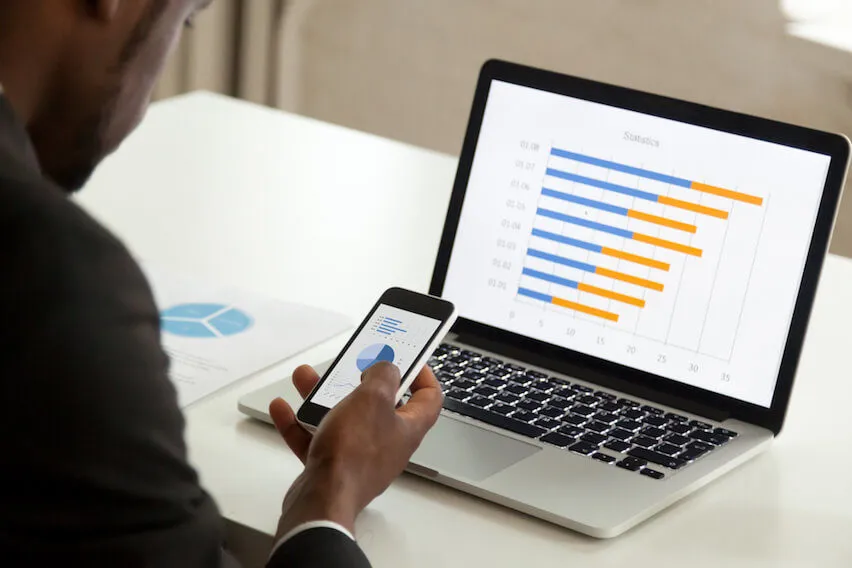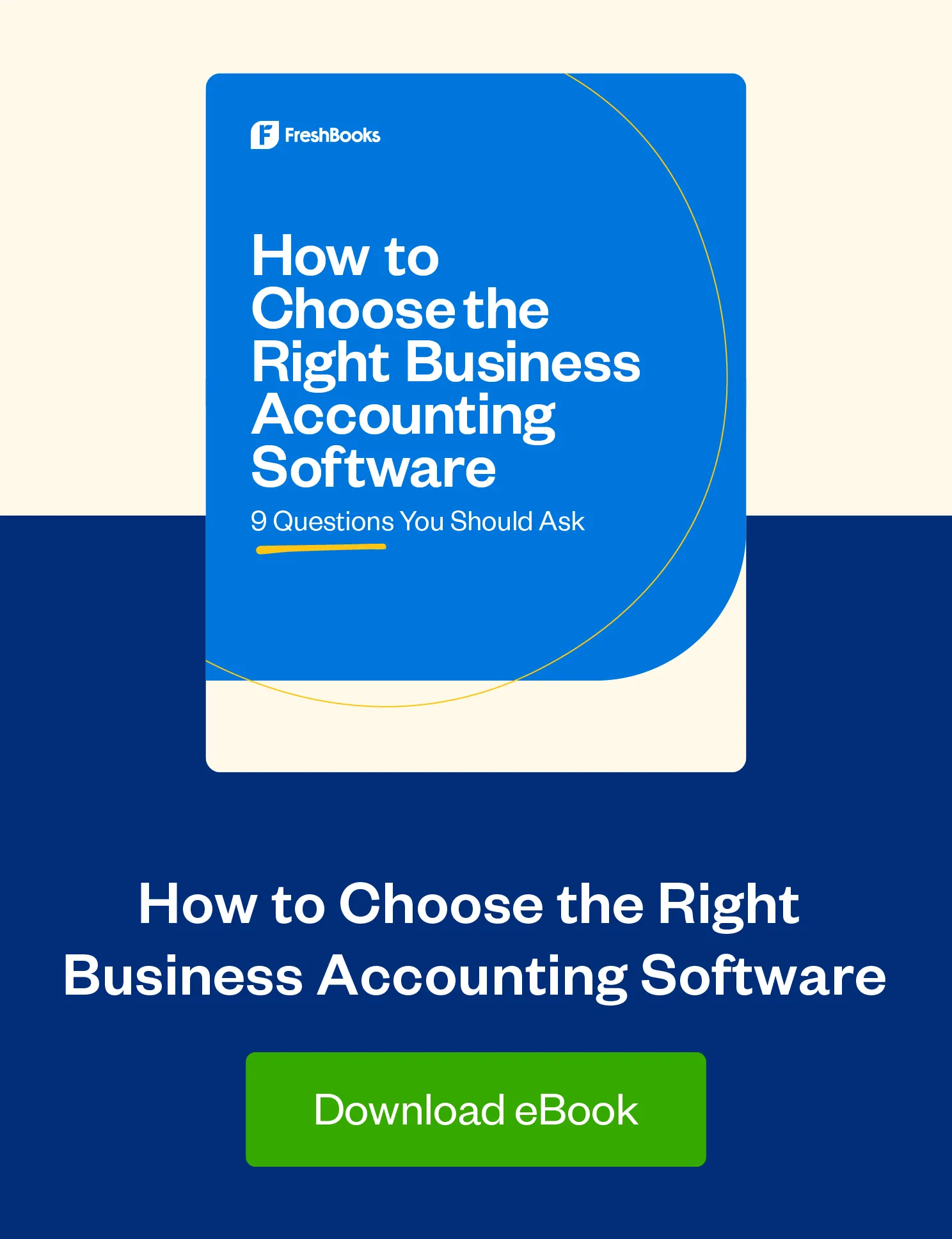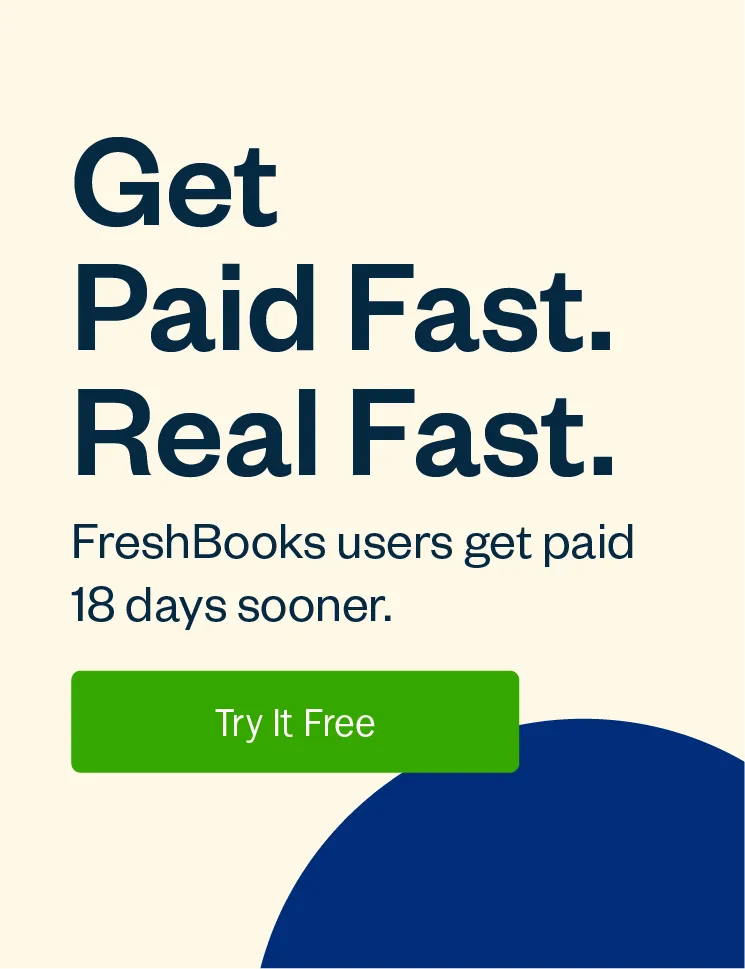The short answer: Yes. But it’s probably not the accounting package you think you need.

An accounting package is a tool or software that helps you manage a necessary evil: Accounting.
From recording expenses and income to drafting more detailed financial reports, these packages simplify your entire accounting process, save you bucketloads of time, and improve your decision-making so you can run a more profitable business. These reasons alone suggest that accounting software is worth the investment.
But Not All Accounting Packages Are Created Equal
Unfortunately, there’s one big problem: Most packages are complete overkill, containing features your small business will probably never ever use.
Because these packages are so readily available and often sold as “easy to use,” it’s easy to think you’re purchasing software your small business needs when, in fact, you’re not. The result? You pay more for unnecessary features you’ll never use.
Thankfully there’s a solution. In this post, you’ll learn what questions to ask to help you find the right package for your small business. But first—just in case you’re not convinced you need an accounting solution—here are compelling reasons to invest in one.
Why You Should Invest in an Accounting Package
Accounting software helps you better organize your finances, simplifies your accounting processes, and saves you heaps of time across 3 core areas:
- Expense tracking
- Invoicing
- Financial reporting
1. Become Super Organized with Better Expense Tracking
Managing and tracking expenses in spreadsheets is a time suck: You have to flip between spreadsheets and consult bank statements and receipts to check the numbers. The high degree of manual input also means you invariably make more errors.
An accounting package provides features that let you quickly and easily record and organize expenses with minimal errors. Important features include the ability to:
- Easily connect with your bank account to reduce any manual entry
- Record expenses from anywhere—even when you’re on the road. Just snap a photo of a receipt with your phone and upload it to the platform via an app
- Create tax-friendly business expense categories so you have a secure expense record you can access during tax season
- Build crucial financial reports with your expense information that will help you make better business decisions (more on that in a bit)
2. Get Paid on Time with Powerful Invoicing
Accounting software isn’t complete without features that allow you to create, send and manage invoices so that you get paid on time, and remain on top of your income.
Creating and sending invoices is a breeze. With ready-to-go, customizable invoice templates you’ll spend less time creating invoices. And because these invoice templates typically include the key elements of any invoice—such as payment terms, due dates, date of issue, and a field for a PO number—you don’t need to worry about excluding crucial information that delays payment.
Ultimately, you’ll make fewer invoicing mistakes and save time. If you’ve ever created an invoice in Excel, saved it as a PDF, attached it to an email, and sent it to a client only to discover you made an error and now have to repeat this mundane process, you can appreciate just how much time invoicing software can save you.
Managing invoices and income is a cinch. You also have access to various features that help you manage your invoices and control your entire accounts receivable process. The software stores all of your invoices in one place so you don’t spend time searching for invoices in a folder on your desktop.
Many solutions will also notify you of overdue invoices, and let you set and send automatic late payment reminders to improve cash flow. Finally, you can access dashboard summaries for quick overviews of income and expenses so you know exactly how your business is performing, day-to-day.
3. Create Financial Reports for Confident Decision Making
Besides income and expense tracking, you can easily create various financial reports or, if you prefer, give your accountant access to create them for you.
Common reports include a balance sheet, trial balance, general ledger, journal entries, chart of accounts, profit and loss report, expense report, and payments collected.
Although each report tells you something different, know that creating them will help you understand how your business is performing, what your spending habits are, and whether you’re even profitable.
You’ll better understand the cost of running your business and if you have enough cash to make a big purchase. Ultimately, you’ll make better business decisions based on reliable data instead of your gut.
Accounting software helps you better organize your finances, simplify your accounting processes, and save heaps of time!
5 Questions That Will Help You Find the Right Business Accounting Software
Benefits aside, how do you find the right accounting package for your small business? Admittedly, deciding can be a tricky process as there’s no shortage of options. The good news is that you can inch closer to a decision by asking the following 5 questions:
1. What Are My Business Needs?
Write down the accounting tasks that are important for your small business right now and then find a solution that meets those needs. If you’re a one-man show, the tasks may be simple and include invoicing, expense tracking, and following up with clients.
2. Will the Solution Grow with My Business?
Besides your current needs, think about your future ones and find software that can scale with you. For example, if you’re a copywriter, you may have more basic needs right now like invoicing, and simple income and expense tracking.
But as your business grows you may choose to subcontract and work in a larger team, and even concentrate on creating more detailed financial reports.
3. Is the Software Built for Me?
Many accounting solutions are built for everyone, which means they include features across a broad market—freelancers, restaurateurs, designers, law firms, and so on. As we saw, the problem with these one-size-fits-all solutions is that they contain extra features you pay more for.
So, find a solution that’s clearly built for your market. For example, if you’re a freelancer, designer, landscaper, small law firm, or any other small business, FreshBooks will work as it has functionality specifically designed for that market. But if you’re a restaurateur, FreshBooks isn’t suitable because it doesn’t handle inventory and payroll.
4. Is the Software Easy to Use?
Feature-rich packages are often bloated and harder to use. You don’t want software that requires an accounting degree to master and necessitates jumping through endless hoops to send an invoice or even a report. The software should have a clean, minimal design with an intuitive interface.
5. Is the Customer Support Any Good?
Finally, many companies only sell you on their features and ease of use. But these same companies are often nowhere to be seen when you experience problems. The right software offers stellar support to help you with any issues.
To check that companies are serious about support, read online reviews and see if they have support channels for you to contact them. A company should be contactable via email, online form, telephone, and the software itself. Be wary of any company that doesn’t list their support contact and email details online.
Need more help finding an accounting package that’s right for your business? Then grab your free guide: How to Choose the Right Business Accounting Software. You’ll find eight common questions you should ask before choosing accounting software.
Final Thoughts
Investing in an accounting package is undeniably important. Not only does it help you manage your finances, but it also saves you the time you would otherwise spend managing expenses, invoices and income through programs such as Excel.
But choosing the right software can be hard. It’s easy to purchase the software you think is right for you, only to discover it isn’t—by which time you’ve wasted your hard-earned money.
Thankfully, if you ask the right questions, you’ll find software that’s a fit: Software that’s built for your market has only the features you need and scales with you.
FreshBooks is one such solution. The cloud accounting software provider is built specifically for small service-based businesses. It also offers other valuable features such as time-tracking and project management to help your business thrive. Why not give FreshBooks a try today?
This is an optimized post and was originally published on the FreshBooks Blog in May 2010.

Written by Nick Darlington, Freelance Contributor
Posted on January 15, 2020

 Can Your Business Really Go Paperless?
Can Your Business Really Go Paperless? Manual Tracking vs. Cloud Accounting: How Much Time You Actually Save
Manual Tracking vs. Cloud Accounting: How Much Time You Actually Save Meet Lisa Who Uses Accounting Software to Keep Track of Her Time and Money
Meet Lisa Who Uses Accounting Software to Keep Track of Her Time and Money
![2025 Small Business Tax Trends [Free Report]](https://www.staging.freshenv.com/blog/wp-content/uploads/2025/03/FreshBooks-small-business-tax-trends-report-2025-blog-hero-226x150.png)




